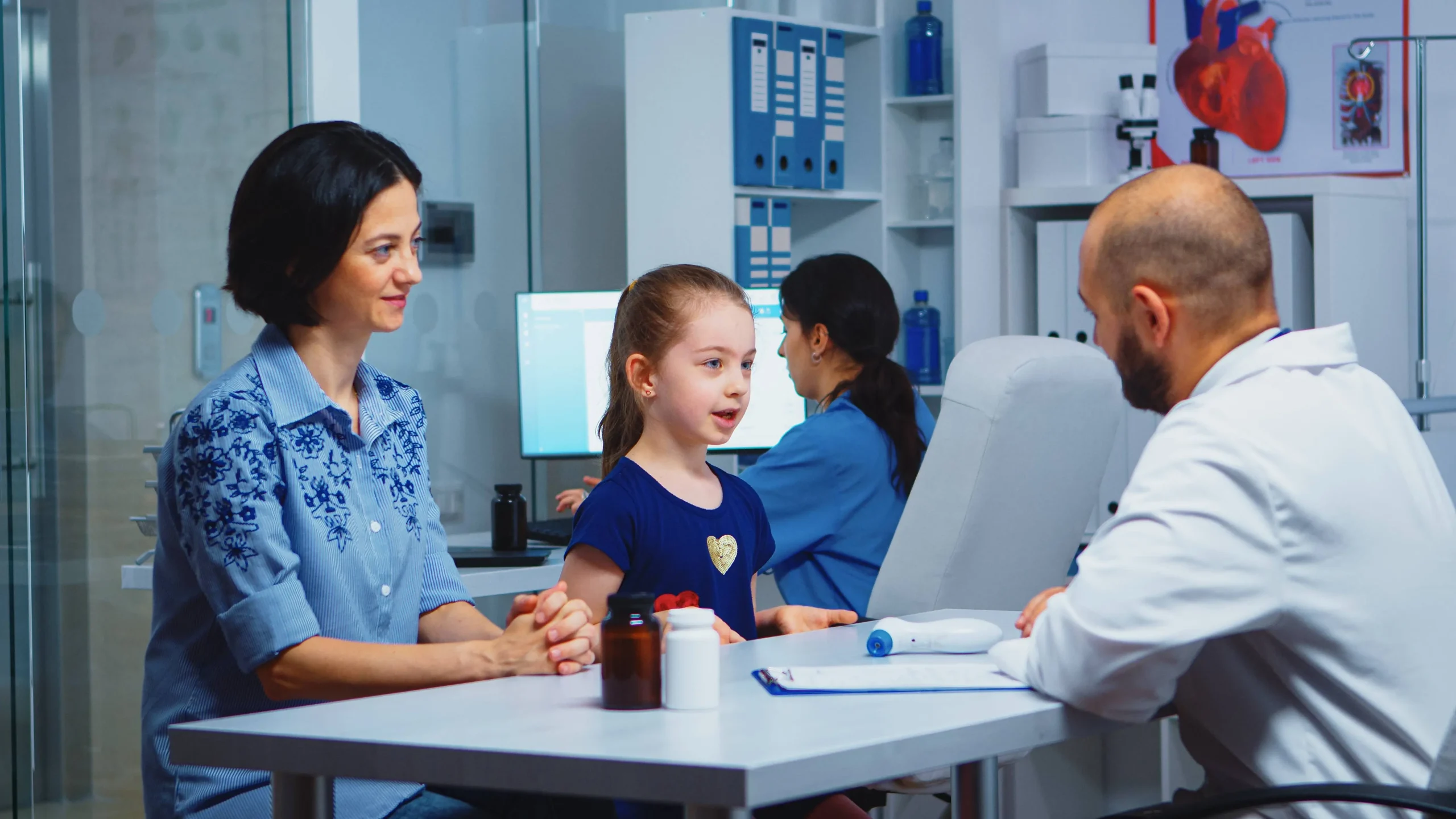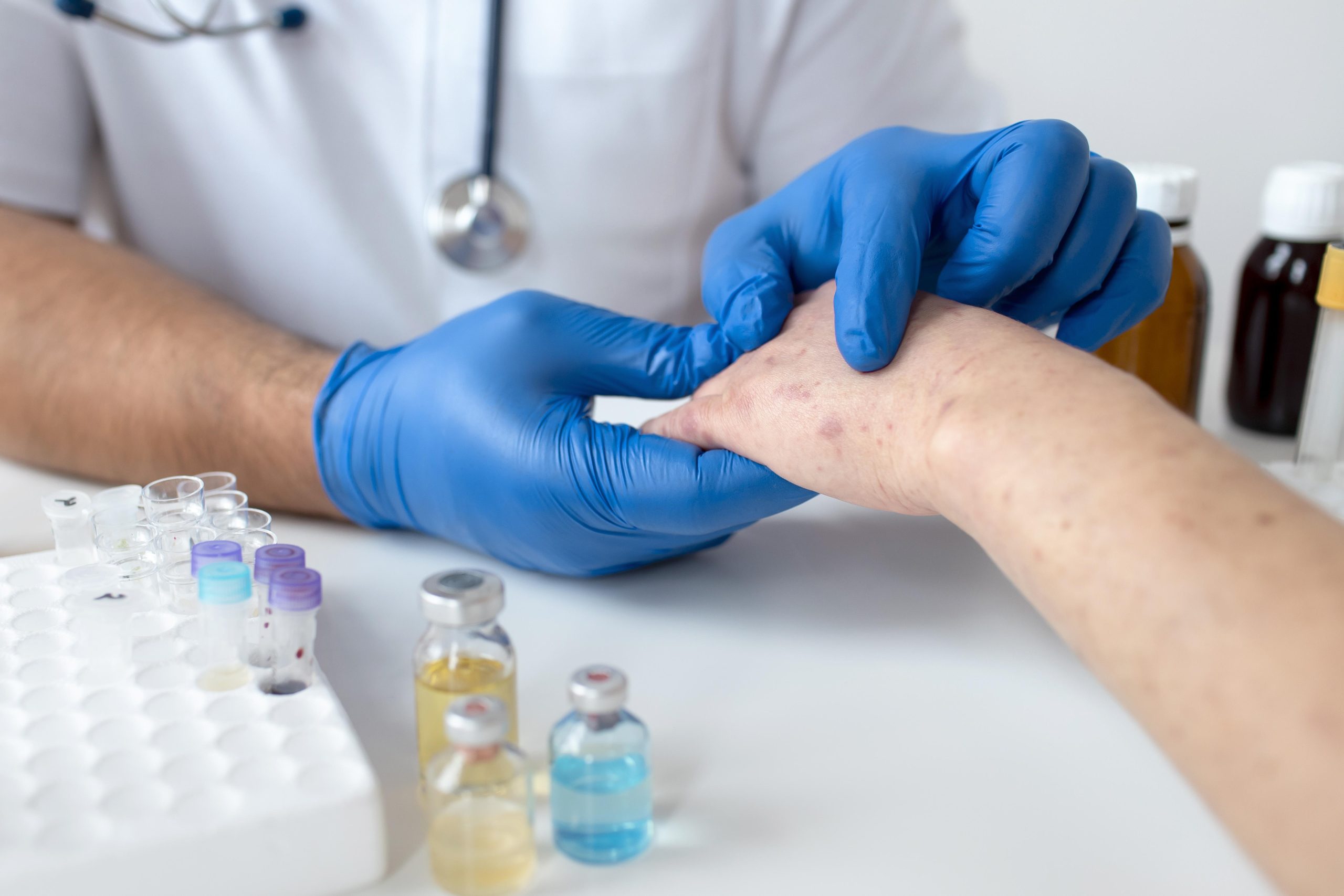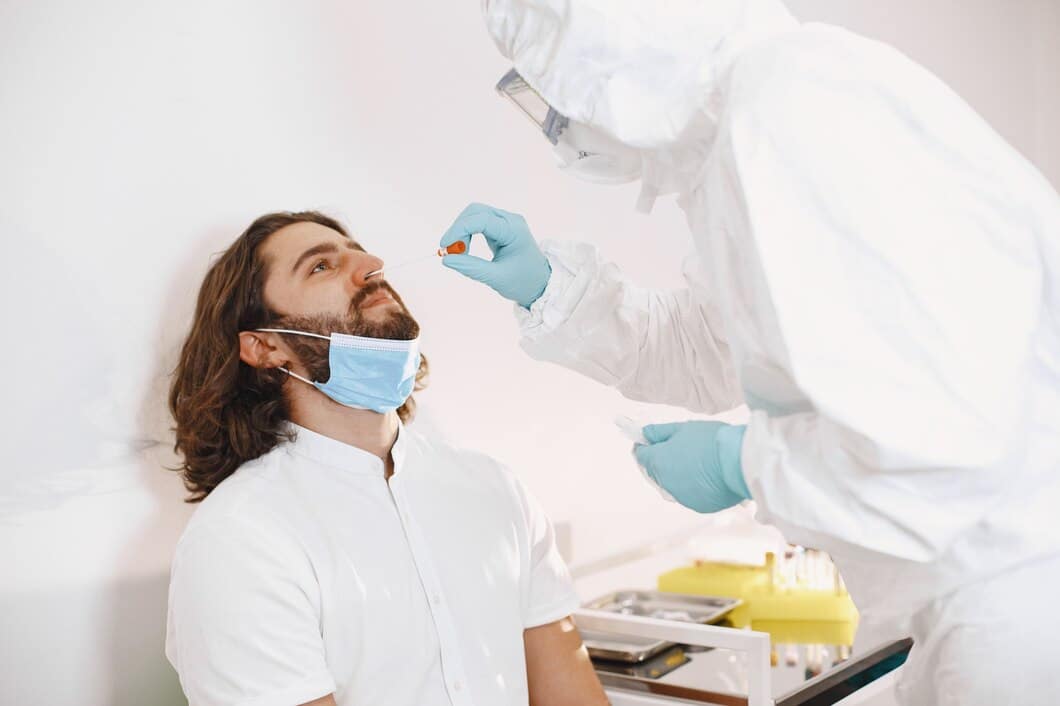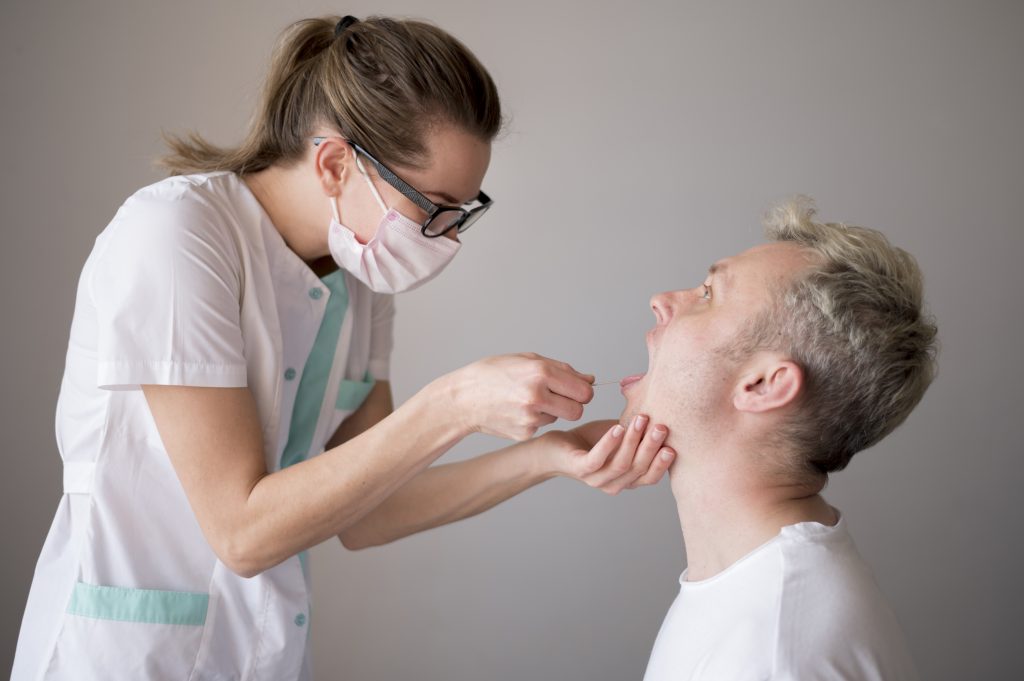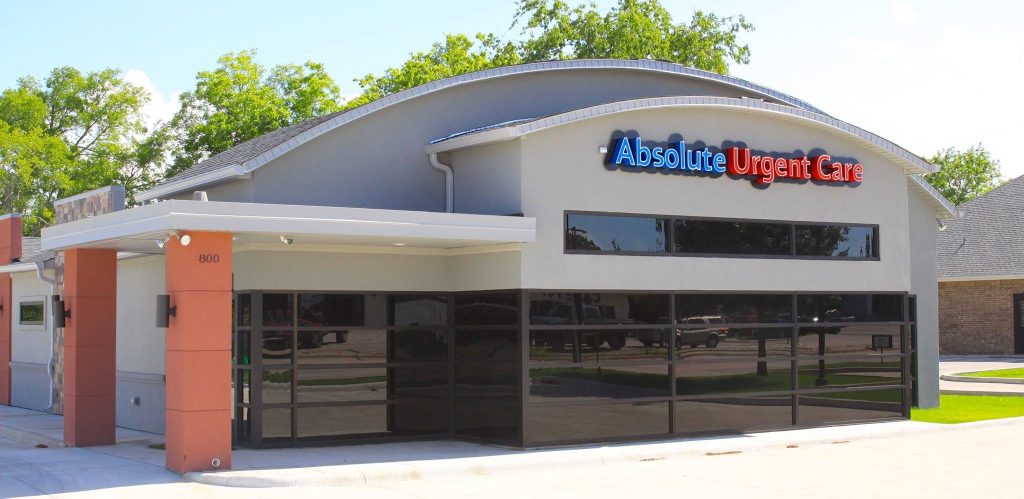Pulmonary complaints, disease of the respiratory system, can be near harmless to lethal. Knowing when to ask for emergency care can be vital to prompt treatment and better health. Asthma attacks, severe shortness of breath, and sudden chest pain are some examples of conditions that can become serious in a matter of minutes and need immediate care.
This blog will discuss the reasons behind pulmonary complaints, what accompanying symptoms to look for when a visit to an emergency care provider, like Absolute Urgent Care, is necessary, and options for treatment when pulmonary complaints do occur.
Table of Contents
ToggleWhat Are Pulmonary Complaints?
For this study, pulmonary complaints were defined as symptoms in the respiratory system (e.g., lungs and airways). These complaints can arise from infections, chronic conditions, environmental factors or acute trauma. Pulmonary conditions include common conditions such as:
- Asthma
- Chronic Obstructive Pulmonary Disease (COPD)
- Pneumonia
- Pulmonary embolism
- Infection or inflammation of the lungs
Certain illnesses can be dealt with through regular medical attention; others require swift medical response.
When To Seek Emergency Care: Signs And Symptoms
Some symptoms indicate a pulmonary emergency. You should act quickly if you find any of the following:
1. Severe Shortness of Breath
So shortness of breath, especially at rest, can signal a serious problem, like an asthma attack, a chronic obstructive pulmonary disease exacerbation or fluid in the lungs.
2. Chest Pain
Sudden or sharp chest pain, especially with shortness of breath, may indicate a pulmonary embolism or collapsed lung.
3. Persistent Cough with Blood
Breath blood is a warning sign of a serious underlying condition, such as lung infection or cancer.
4. Cyanosis (Blue-Tinged Skin)
A bluish hue in the lips, nails or skin means not enough oxygen is getting into the blood, and immediate medical care is needed.
5. High Fever and Chills
Fever and chills, when accompanied by difficulty breathing, could indicate pneumonia or a serious lung infection.
Pulmonary Emergencies: Common Causes
1. Asthma Attacks
Asthma attacks happen when airways become inflamed and narrow, causing wheezing, coughing and difficulty breathing. Severe attacks can lead to lack of oxygen.
2. Pulmonary Embolism
A blood clot in the lungs can impede blood flow and lead to chest pain, a rapid heart rate and shortness of breath. This condition is life threatening and needs immediate treatment.
3. Pneumonia
Pneumonia is an infection in the lungs, which causes difficulty breathing, fever and a persistent cough. In severe cases, fluid can build up in the lungs.
4. COPD Exacerbations
Chronic Obstructive Pulmonary Disease (COPD) exacerbations can lead to worsening pulmonary symptoms — dyspnea, chest tightness, and fatigue.
5. Traumatic Injuries
Blunt force trauma to the thorax from accidents can lead to lung collapse (pneumothorax) or fracture to the ribs, both of which are time-sensitive.
When to Visit Emergency Care
Knowing when to get emergency care is critical for managing pulmonary complaints. Get immediate medical care if:
- You develop sudden, severe shortness of breath.
- Chest pain that continues or gets worse, especially if it spreads to the arms, back or jaw.
- Breathing problems come with confusion, dizziness, or loss of consciousness
- You cough up large amounts of blood.
- Symptoms get worse despite being on prescribed medications, like an inhaler.
- Evaluation of Pulmonary Disorders
During your urgent care visit, Absolute Urgent Care has the option of a variety of diagnostic tools to determine the cause of your ailment.
1. Chest X-Rays
X-rays can show infections, fluid buildup or structural abnormalities in the lungs.
2. CT Scans
CT scans give a detailed view of the lungs, and they are often used to search for blood clots or tumours.
3. Blood Tests
Blood tests can also detect infections, oxygen levels or signs of a pulmonary embolism.
4. Pulmonary Function Tests (PFTs)
PFTs assess lung function, measuring airflow and lung size to help diagnose asthma or COPD, for example.
Pulmonary Emergencies: Management Options
Treatment for the emergency will vary, depending on the underlying condition, but may include:
1. Oxygen Therapy
Patients who are unable to breathe or who have low oxygen levels are put on supplemental oxygen to help stabilize them.
2. Medications
- Bronchodilators: To open the airways in asthma or COPD.
- Antibiotics: to treat bacterial pneumonia.
- Anticoagulants: this is so as to dissolve the existent blood clots in the cases of pulmonary embolism.
3. Procedures
- Thoracentesis: For draining excess fluid from the lungs.
- Intubation: For patients who are unable to breathe autonomously.
That May Prevent a Pulmonary Emergency Preventing Pulmonary Emergencies
Some emergencies happen without a warning — other could be avoided with a little precaution:
1. Manage Chronic Conditions
Follow your doctor’s advice on managing asthma, COPD or other chronic lung diseases. Always have rescue inhalers at hand.
2. Avoid Triggers
Reduce exposure to smoke, pollution, and allergens that may worsen respiratory disorders.
3. Stay Vaccinated
Vaccinate against influenza and pneumonia, as these infections can lead to severe complications among patients with pulmonary diseases.
4. Maintain a Healthy Lifestyle
Maintains good lung function and also boosts overall health Regular exercise, balanced diet and avoiding smoking
Why Should You Select Absolute Urgent Care for Pulmonary Complaints?
When pulmonary emergencies happen, getting timely care can be life saving. You have reached Absolutely Urgent Care: Expert emergency services designed with you in mind.
Diagnostic tools that are comprehensive and able to deliver speed and confidence in assessments.
Trained professionals accustomed to managing lung treatment.
Tailored treatment plans to help stabilize and manage your symptoms.
As a patient-centered care provider, Absolute Urgent Care strives for you to receive the attention and treatment you need.
Copd: Living with Pulmonary Conditions
If you have a chronic pulmonary condition, it’s important to work with a health care provider to manage your symptoms. An action plan, such as for example:
- Identifying early warning signs of worsening
- Routine follow-up to modify treatment as required.
- Practicing breathing exercises and exercising regularly.
Take Action: Don’t Dismiss Symptoms
Pulmonary complaints can progress abruptly, and so it’s important to act at the first hint of trouble. This can lead to serious complications or even life-threatening situations if treatment is delayed. If you notice any of the warning signs mentioned in this blog, seek emergency care without delay.
Pulmonary complaints are one of the more common symptoms and condition-facing patients who present for treatment from very mild to life-threatening emergencies. Being aware of the symptoms, however, and knowing when you should seek medical attention is critical for your health and continued safety. Whether it’s shortness of breath, chest pain or intense coughing, timely intervention can be lifesaving.
Absolute Urgent Care has the experience and compassion to provide those needs. Don’t let pulmonary problems go untreated — your health depends on it.
Stay safe, stay healthy, and make your lungs your priority!

















